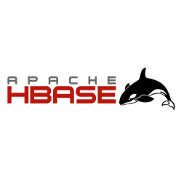| HBase Adds MultiWAL Support |
| Written by Kay Ewbank | |||
| Thursday, 02 February 2017 | |||
|
A new version of Apache HBase is available with date-based tiered compactions and a CoDel based RPC scheduler. Apache HBase is Hadoop's open-source, distributed, versioned, non-relational database, modeled after Google's BigTable. Many of the improvements to HBase 1.3.0 are bug fixes, but there are a number of new features. The date-based tiered compactions have been added to solve the problem where data is mainly written sequentially by when it arrived at the back end, while data is read mainly in time-range scans of certain column families. In the previous version, the store file layout can't be used to make full use of the scan api feature to skip store files with data out of the time range. Date-based tiered compaction overcomes this problem, meaning that records that are old enough to have 'expired' can be dropped when the store is compacted. The support for Multi WAL (Write Ahead Logs) has also been improved. Without Multi WAL support, each region on a RegionServer writes to the same WAL. If the RegionServer is busy because it hosts several regions, and each write to the WAL is serial, the WAL can degrade overall performance. Multi WAL means a RegionServer can write multiple WAL streams in parallel. Tests of the new feature show improvements of 20 percent in average latency when running on pure SATA disks, and 40 percent on SATA-SSD disks. The RPC request scheduler is another feature that has been improved. The previous version could operate in two modes: simple FIFO, and "partial" deadline, where deadline constraints were only imposed on long-running scan requests. The updated version adds support for scheduling based on the controlled delay (CoDel) algorithm that is used to combat bufferbloat. This prevents long standing call queues caused by discrepancy between request rate and available throughput. The CoDel algorithm provides active queue management with controlled delay. A defined threshold is set, and when the minimum delay goes over the threshold, calls are dropped to take the delay back under the threshold. Other improvements include Maven archetypes for HBase client applications; a throughput controller for flushes; bulk loaded HFile replication; and reduced memory allocation in the RPC layer.
More InformationRelated ArticlesFirst Hybrid Open-Source RDBMS Powered By Hadoop and Spark
To be informed about new articles on I Programmer, sign up for our weekly newsletter, subscribe to the RSS feed and follow us on Twitter, Facebook or Linkedin.
Comments
or email your comment to: comments@i-programmer.info |
|||
| Last Updated ( Wednesday, 01 February 2017 ) |


